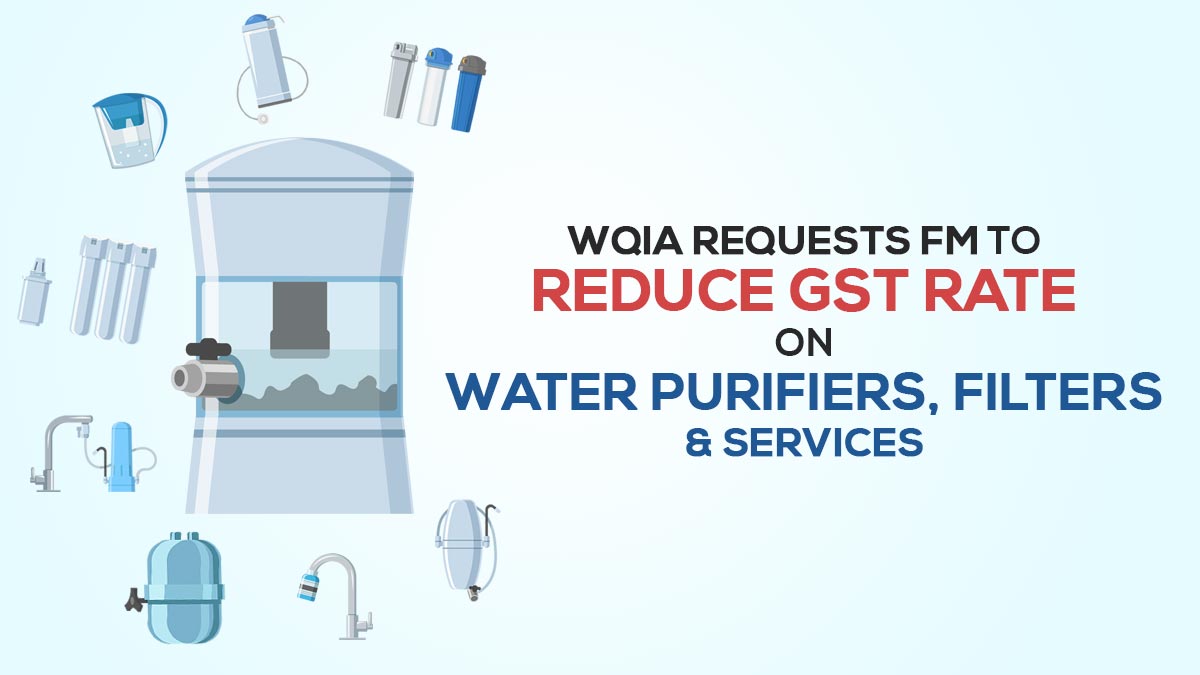
The Water Quality India Association (WQIA) has requested that the central government lower the GST rate on water purifiers, filters, and related services from 18% to 5%. They argue that the current high taxes make these essential items too expensive for many people and emphasise that making safe drinking water more affordable is important for everyone’s health.
WQIA- an industry body of manufacturers and dealers of drinking water systems, safe drinking water must be considered as an essential commodity and not a luxury. As per the association, imposing an 18% tax on water purifiers puts them in the same bracket as air-conditioners and cars, even though they are specified as a public health essential.
In the Central Ground Water Board’s 2024 report, the reason for reducing taxes has been specified as the quality of water in India. The report underscored contamination by fluoride, arsenic, nitrates, and heavy metals in several regions, raising risks of waterborne diseases. These illnesses account for almost 80% of sicknesses in developing countries, per the WHO and UNICEF report.
Even after the risks, there are only 6% of household electric water purifiers in India compared with 20% in other emerging markets. As per the WQIA, lower and middle-income families are not fully accessible to purifiers due to the high GST rate, and there is a lesser adoption. At present, 20-litre water jars, a less sustainable option, are charged at 12% and are expected to drop down to 5% under GST rationalisation, creating a policy anomaly.
Also, the association outlines the environmental case marking that one purifier can substitute nearly 12,000 plastic bottles annually and lessen the reliance on LPG for boiling water. WQIA cited that reducing GST would have solely a marginal impact on government revenues, as the present market size of the industry is nearly Rs 4400 crore.
Read Also: WB AAR: Comprehensive Water Supply Planning Services Are Exempt from GST
As per the Confederation of Indian Industry (CII), GST rationalising on water purifiers shall be consistent with the goal of the government under Har Ghar Jal, Ayushman Bharat, and Swachh Bharat, while supporting preventive healthcare.
Distortions might be created from the current plan to merge the 12% and 28% GST slabs if related goods are not aligned. If bottled water prices decrease by 5% while water purifiers remain at 18%, it creates an inconsistency that contradicts the goal of rationalisation.
The GST council, in its upcoming round of deliberations, is anticipated to take up slab rationalisation.









